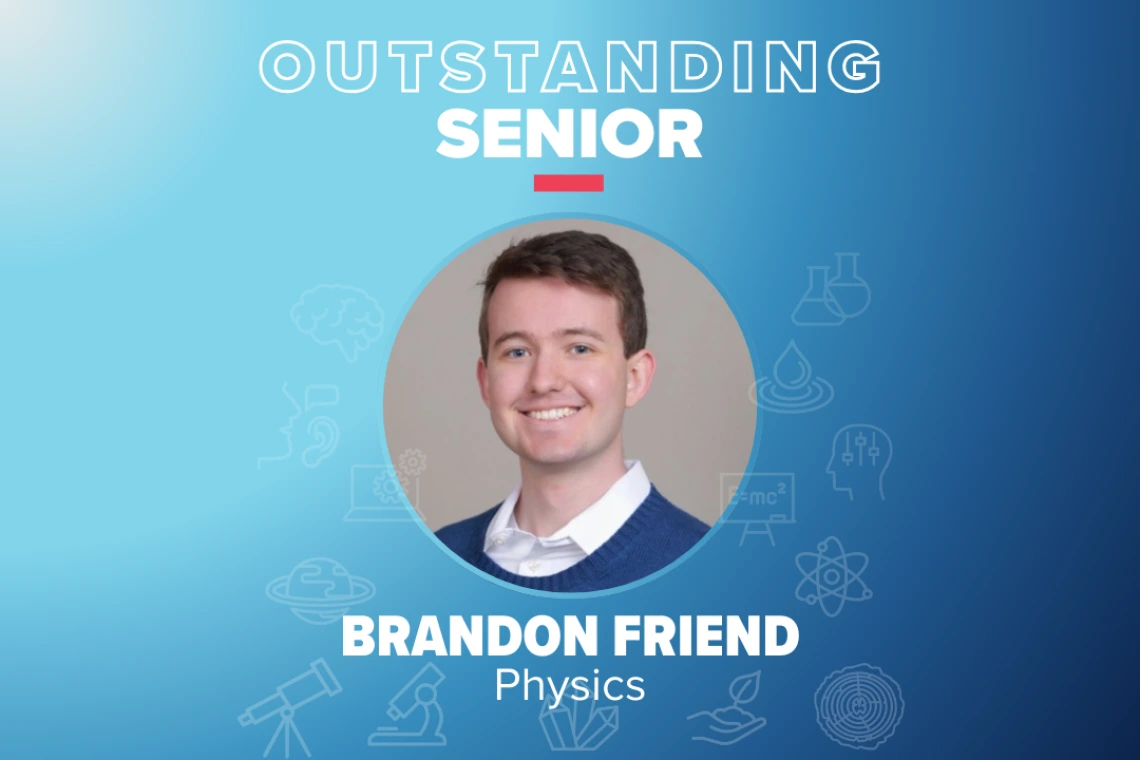Outstanding Senior Awards: Brandon Friend

Each semester, the College of Science recognizes outstanding graduating seniors from each of its departments. Today's award recipient is Brandon Friend from the Department of Physics.
College of Science: Why did you choose your area of study?
All throughout middle and high school, my favorite subjects were math and science. In high school, I took two physics classes and really enjoyed learning about the interplay of electricity and magnetism. That experience motivated me to major in physics so I could explore more of the theories that describe our universe.
COS: Tell us about a class or research project you really enjoyed.
A class I really enjoyed was the Advanced Physics Laboratory, where I got to repeat historical experiments and learn important experimental techniques. One notable experiment was the photoelectric effect. We investigated the quantized nature of light and measured Planck’s constant, which required a solid understanding of the underlying theory, careful experimental procedure, and an interesting analysis of the resulting data.
COS: What is one specific memory from your time at UA that you'll cherish forever?
What I’m most proud of is my most recent research project, where I expanded a model from two to three dimensions and applied methods from quantum computing to test both the model and the limitations of today’s quantum computing algorithms. The goal was to simulate the nucleus of helium, which has two protons and two neutrons. I built on previous work that used a small lattice to encode the positions and interactions of these nucleons and mapped the system onto a quantum computer. I found that the nucleus was bound and successfully used quantum computing to solve the problem.
COS: What is next for you after graduation?
After graduation, I’ll be attending the University of Wisconsin–Madison for their Ph.D. program in physics. My research at the University of Arizona helped me discover a passion for theoretical quantum computing. I hope to contribute to the development and improvement of quantum computers and the algorithms that will allow us to use them more efficiently as the technology continues to advance.

